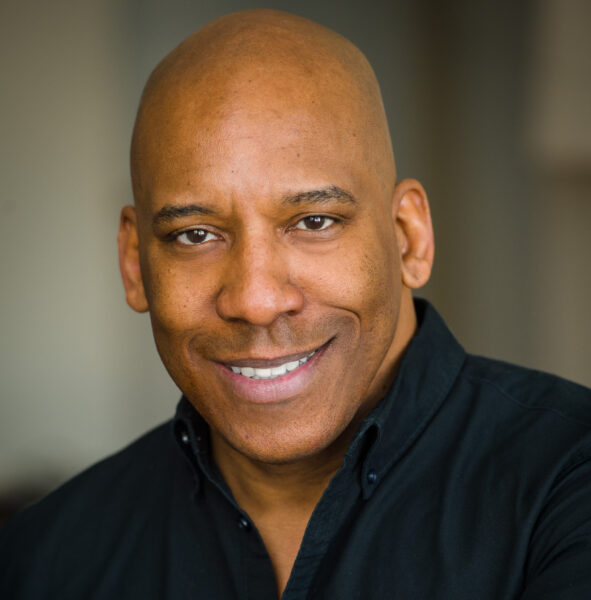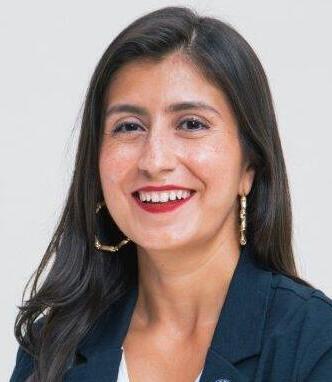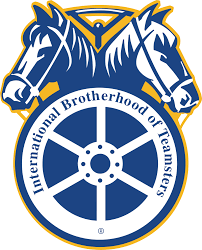New York, NY – SAG-AFTRA is about 160,000 members strong. Ezra Knight is the union’s New York Local President and National Vice-President. LaborPress had a chance to talk to Knight about his career, the state of the union during the pandemic, how to keep members safe, and more.
LP: How did you become interested in a career in union leadership?

EZ: When I address that question my mind always goes back to being born in Atlanta, Georgia. The Southern Baptist church service is a very big part of that community. When I was born, early 60s, I was the beneficiary of a Civil Rights Movement that was connected to the church, specifically the Black church. That always had this kind of inseparable dynamic in my mind. I never separated those things of community and service and the greater good kind of concept. So, jump from that kind of birthplace stuff to becoming a professional actor and being very, very excited about getting my Actors Equity Association card for theater. When I got that Actors Equity Association card and became a union member, one of the first things that happened was I became the Equity Deputy. The Equity Deputy is the person who interfaces with the union and the theater company and management. As part of the cast, you’re kind of working in the middle. I just always loved that idea of unionism — of not only being part of a union that has validity and an incredibly historic kind of underpinning with not only the Black community, but labor just internationally. So, learning these little things about unionism, as connected to service were very important to me and very inspiring. When I got my Equity card that led to getting my SAG card, ironically and interestingly enough. Then 10 years later, I got my AFTRA card. So, then I carried three union cards. So, a long way of answering that question is to my excitement of unionism, as being part of service and actually what you do. You don’t just perform and shine for yourself, you perform and shine for yourself in your community. You also get to know the inner workings of that career around performing professionally as a union actor and then giving back. That always infers a certain leadership whenever you look at it that way, and you take on the responsibility. So, here I am now, SAG-AFTRA NY Local President, as well as a national officer, and all that came from that same spirit that I’ve always had from the very beginning.
LP: What are some of the highlights of your career as a union leader?
EZ: That first Actors Equity Association union card, would be one, combined with my first steps as a deputy getting that big packet envelope from the union placed up on a bulletin board and having that be displayed for the actors; kind of suddenly feeling more important and more recognized as a leader and a stalwart presence for performers. My involvement with SAG- AFTRA began in November of 2011, when I was first elected to a national board seat and a local board seat here in New York City. That was also part of a pro-merger political platform that I ran on with my constituents here in New York City, USAN [United Screen Actors Nationwide]. So, merger was very important to me. From what I learned professionally, as well as politically in terms of my own involvement and being part of protests and the infamous commercial strike of 2001, 2002. I learned a lot about the union and activism and wedding those things. So, the highlight, the big strong highlight would be merger in terms of my first elective service was combined with SAG, legacy SAG, emerging with legacy AFTRA. And so the ratification of that in March of 2012, kind of solidified a sense of purpose that this was the right thing to do. I was a part of that mission, to make that happen with other like-minded union leaders.
I am [also] co-national chair of the Ethnic Employment Opportunity Committee — EEOC. That was the first committee seat that I sat in. Now, moving that from a local space into a national dynamic, being Co-Chair National of the EEOC, is also a way of combining my specific interests as a Black performer, with the larger interests of our union. How things interface and how I address membership through my concerns, as well as the membership that represents where I’m coming from to performers of color, etc. and the specifics of that. So, I get to sort of wed my own personal connections with things that also spawn a greater dynamic for the union locally, as well as nationally.
LP: I’d like to hear your thoughts on how the pandemic is currently affecting members.
EZ: I see how it’s affected the entire globe, not only our city, not only our union, but I like to acknowledge the greater effect because that kind of trickles down into the local because of perspective. Yes, we lost jobs, shows shut down — I still have my theater union status, so I was in a play, an Off-Broadway play that got shut down March 12, 2020. I experienced it through my professional, commercial and theatrical work from SAG-AFTRA, but I also felt that on the other side with Actors Equity Association. As a New York performer, we often carry both those hats because of the stage and Broadway, etc. We kind of experienced both levels of it. Our shows were lost, jobs were lost, opportunities were lost. Health insurance was lost by some, but again, part of the international fabric that SAG-AFTRA touches upon was certainly connected to the world dynamics shifting on that. Yes, a bit hell on earth as far as how it affected our industry, yet at the same time, I’m an optimist and a glass half-full kind of guy. When people were locked down in the pandemic they watched shows, they watched commercials. They did reruns of stuff that was already in the can, right? Some of those contracts were renewed, some of those contracts created new jobs that would be spawned with our sister unions. Work began to pick up in some areas, as a result of the need for those jobs to renew or resume, as well as the protocols that were put in place for us to get to work. We were suffering on one level, from a loss of work, [but] the energy that was being put in place to renew and replace those jobs became an interesting dynamic that put us into another place by the time 2021 rolled around. But getting through it was really rough. When my show shut down at the Public Theater on March 12, 2020, two weeks later, the first check that I got for subsidy, for support, was from the Actors Fund. Which, combined with the SAG-AFTRA Foundation, the SAG Foundation, combined with the Actors Fund, sent me a check that I had qualified for from the show that I lost, as well as being a union member of not only Actors Equity Association, but also SAG-AFTRA. And the combined interests and efforts of those two entities kind of helped give me support. So, as hard as it was, union status, kind of presented itself as a vital and necessary part of my work life in this industry. It had a way of reflecting that and that was not foreseen, you can only foresee it if you were some sort of psychic. But in the way that it played out, I found it quite profound. It kind of made sense in a lot of ways.
And the first quarter of 2021 garnered the highest earning SAG-AFTRA performers had ever received in a single quarter [$1.5 billion]. And that was a combined result of the commercial work that picked up and the television and theatrical work that picked up. That did hinge upon our Return to Work protocols because otherwise, our performers, our union members would not have been able to get to work. That kind of said something about what has happened in the midst of such turmoil and loss. Something shifted with how the profitability of television, film and commercials and how that affected our industry. It’s rather amazing.
LP: What are the Return to Work safety protocols and how do they help to keep the production sets safe?
EZ: Our leadership, our staff, led by Duncan Crabtree-Ireland who is our National Executive Director and Chief Negotiator, as well as our other functioning entities within our staff, we immediately kind of connected with IATSE, with the Writers Guild of America, with the crafts unions as well, connected to the Teamsters, as well. I mean, all those entities completely collaborated with health officials from the government to create Return to Work protocols for us to return safely to work. I can tell you that my firsthand experience on September 10 of 2020, I was cast. I found myself on set of a Tide commercial, which I had been cast in and the set looked like an ICU ward. Talk about performing under distraction and pressure. Those protocols were set up by SAG and our sister unions. And they stipulated, at that point, there wasn’t a vaccine mandate, but there was rigorous testing. And you couldn’t enter the set without having tested negative and there was a lot of PPE around things. But that was my first kind of COVID job. And I got a chance to see what our union had helped to create. That said, not every producer, not every performed project could afford to do that level of assiduous cohesion with the protocols. So, that was a whole terrain out there too, that people had to be careful in negotiating, but I know that what I saw on the set of that Tide commercial – Saatchi and Saatchi is still a very strong entity in producing commercial content. And those entities can certainly adhere very strongly to, and can afford to adhere to those protocols, which, they can limit time and space and all these things. But I got to see that there was a way to work as well as be productive within the pandemic. So, they were essential, so essential that other entities all over the world were looking at our Return To Work protocols and mimicking and copying them because they’re so effective.
LP: What about diversity, equity and inclusion in the industry right now? Is it improving, and what needs to be done to ensure that it is?
EZ: I’ve lived diversity, equity and inclusion my entire life. I think any successful woman will [also] attest to that. Anyone who represents a specific entity outside of the white male dominated power structures. Anyone outside that will attest to living it. So, my lens has always been attuned to that, also as a son of the South, born in Atlanta, Georgia.I’ve always been very much aware of the issues of diversity, equity and inclusion and how they affect my life and my work. I’ve been successful. I carry not only the pride of that success, but also some answers, maybe, and some good questions towards what can help others. Like, myself to be acknowledged, to be successful, to have an impact and have their voices heard, because I believe serving the interests of one group can intersect with the interests of other groups as well. That said, my being in a leadership position comes from my desire to reflect my understanding of how optics matter, how my face as a union leader means something, I know that inherently makes a difference. When a young performer of color sees me, they see a potential of something greater happening for their career or something certainly more operative and inclusive in terms of service. So, how does that affect whether or not we’re seen on screen and represented fairly or with some more humanity? The point of view from a leadership stance affects so much of that to me because it’s what our members and what our union is addressing that becomes so important. We see now that there’s more inclusion in casting and commercials. You see that now. And that has come from people protesting. People, those who have died for the protests in the cause have also been part of it. The George Floyd murder kind of spawned a national awakening and awareness of this, and that our industry was affected and has been affected by that. You see more LGBTQ+ involvement in things as well. You see performers with disabilities being included in places where they weren’t always. We see our stunt world more inclusive as well because that was always a very strong bastion of this white male dominated club, which now has been asked and told to open itself up. So, we’re doing things there as a union to address all of those spaces, by inspiring our membership, by speaking out, by making those issues topics of not necessarily political ends, but certainly addressing the social presence that we that we do fit in as a union. We have a wide, highly recognized space that SAG- AFTRA sits in on an international basis. The work that we do to affect inclusivity in casting and how we’re staged and how we’re put on screen, that matters to our national dynamic as well. How we stand by those people who are doing that work, and what we as a union can do to affect that. I think we can do a lot of things. I think we have done a lot of stuff even down to our own house cleaning — uncovered unconscious bias training, workshops, issues around sensitivity, around sexual harassment, all those things feed into SAG-AFTRA’s very, very active energy and causing this inclusion to be something that is real, more than just talked about.






